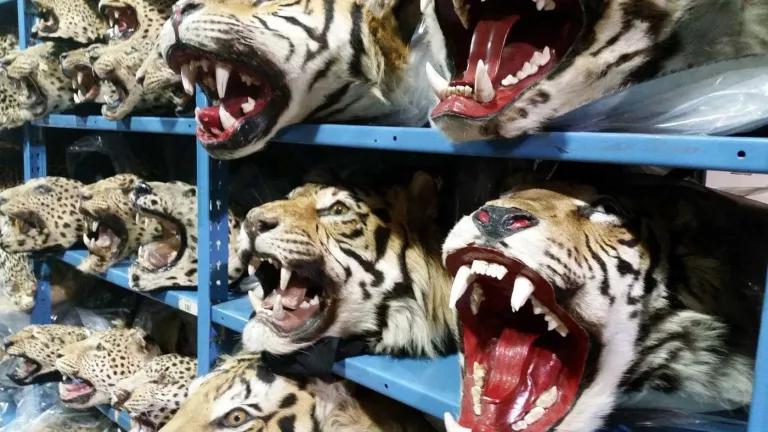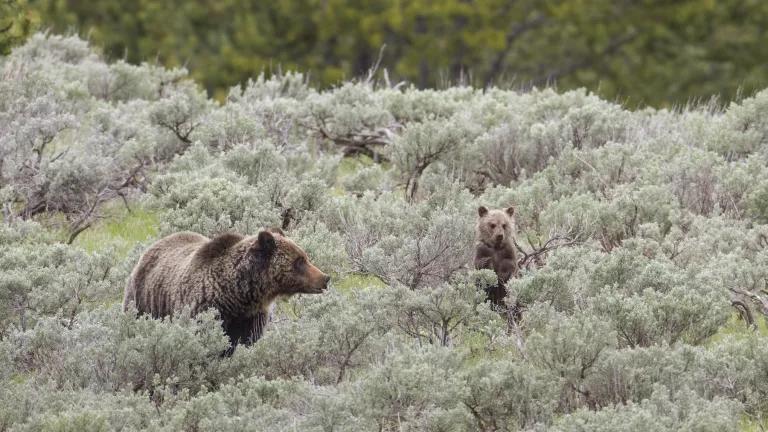Bipartisan Effort to Prevent Pandemics and Biodiversity Loss

In a rare bipartisan move for Congress, Senators Cory Booker (D-NJ) and John Cornyn (R-TX) today introduced the Preventing Future Pandemics Act of 2020, which would tackle wildlife trade to help prevent future zoonotic viruses like COVID-19, while also curbing biodiversity loss. This is a critical first step in tackling the threat wildlife trade poses to human health and a healthy, thriving natural world.
COVID-19 is thought to have originated in a wildlife market in China. Scientists believe the virus may have started with horseshoe bats traveling to other species (possibly including highly-trafficked pangolins) before coming into contact with humans. This isn’t the first time: nearly two-thirds of emerging infectious diseases originate in animals, including SARS, MERS and Avian Flu, and nearly 1.7 million undiscovered viruses may exist in wildlife.
In fact, pathogen spillover from wildlife to humans is increasing as habitat encroachment and destruction and wildlife trade explode (habitat loss and wildlife exploitation are the top drivers of biodiversity loss). Both activities provide increased opportunities for animals and humans to interact and for species to interact in ways they haven’t before. Wildlife markets create the perfect environment for zoonotic diseases to spread to humans due to the large number of species confined near each other for extended periods of time in unhygienic conditions.
And this is not just a foreign problem. The United States is one of the world’s largest consumers of wildlife, importing about one billion wildlife products every year, including about 200 million live animals.
The Preventing Future Pandemics Act of 2020 recognizes the need for a total paradigm shift if we are to stop future zoonotic viruses. It is the strongest Congressional proposal to stop future zoonotic viruses.
Among other things, the bill would:
- Prohibit the import, export, or sale within the United States of live wild mammals, birds, reptiles and amphibians for human consumption as food or medicine and any attempts to commit these acts. It also sets penalties for violations at up to $100k fine and 5 years in prison;
- Call upon the State Department to work bilaterally, multilaterally, and through relevant international bodies in which the U.S. participates to secure similar market closures by other countries;
- Dedicate funding to the U.S. Agency for International Development (USAID) to provide technical and financial assistance to help those communities that rely on consumption of wildlife for food security to develop and transition to alternative sources of protein and directs USAID to increase its activities in global health, biodiversity, and combating wildlife trafficking;
- Substantially increase resources for the U.S. Fish and Wildlife Service (FWS) to hire, train, and deploy law enforcement attaches in countries that are known or suspected to be a source of illegal trade; and
- Mandate certain agencies to conduct a study evaluating the impact of terrestrial wildlife consumption as food or medicine on the emergence and transmission of viral and other microbial pathogens and the transmission of microbes from animals to humans.
The bottom line is that wildlife trade is a growing threat to our public health, which spurred NRDC to recommend a ban on international commercial wildlife trade. While rigorous enforcement of existing laws, regulations, and international treaties regarding wildlife trade and markets is critical and necessary, it’s not enough. The conditions for viruses to emerge and spread to humans occur in legal and sustainable trade and markets, just as they do in illegal and/or unsustainable trade and markets, making it critical to address both.
Historically, the United States has led the way in cracking down on illegal and unsustainable wildlife trade and helping other countries do the same. Never has it been more important for the United States to reassume this role by leading the world in curbing wildlife trade to stop future zoonotic pandemics. The Preventing Future Pandemics Act of 2020 is a critical step in doing just that.




